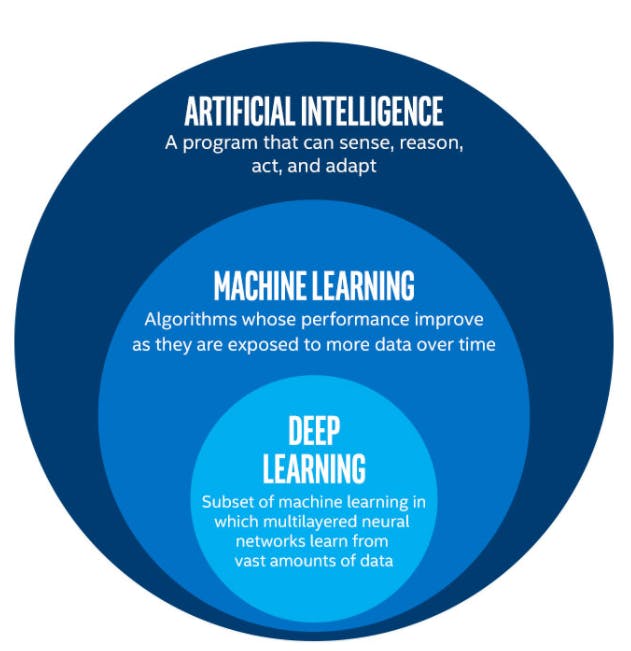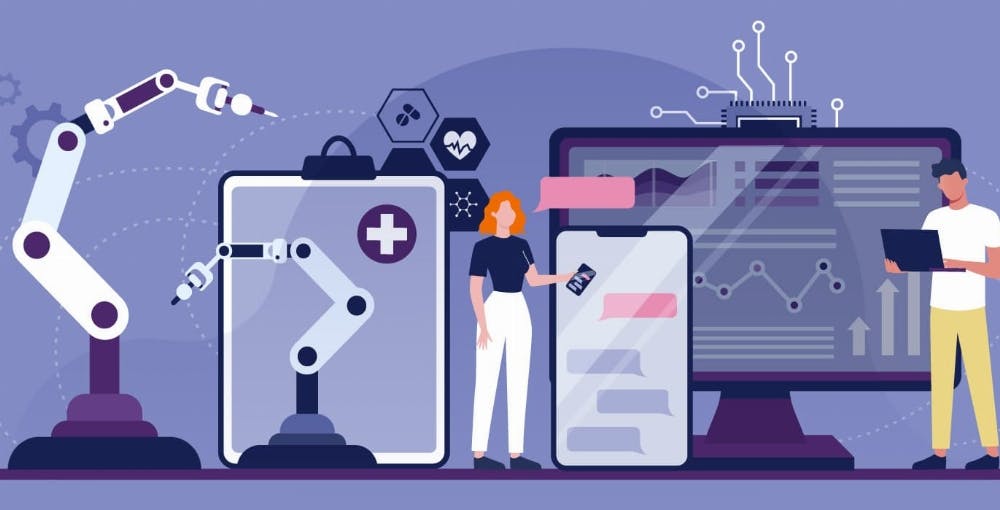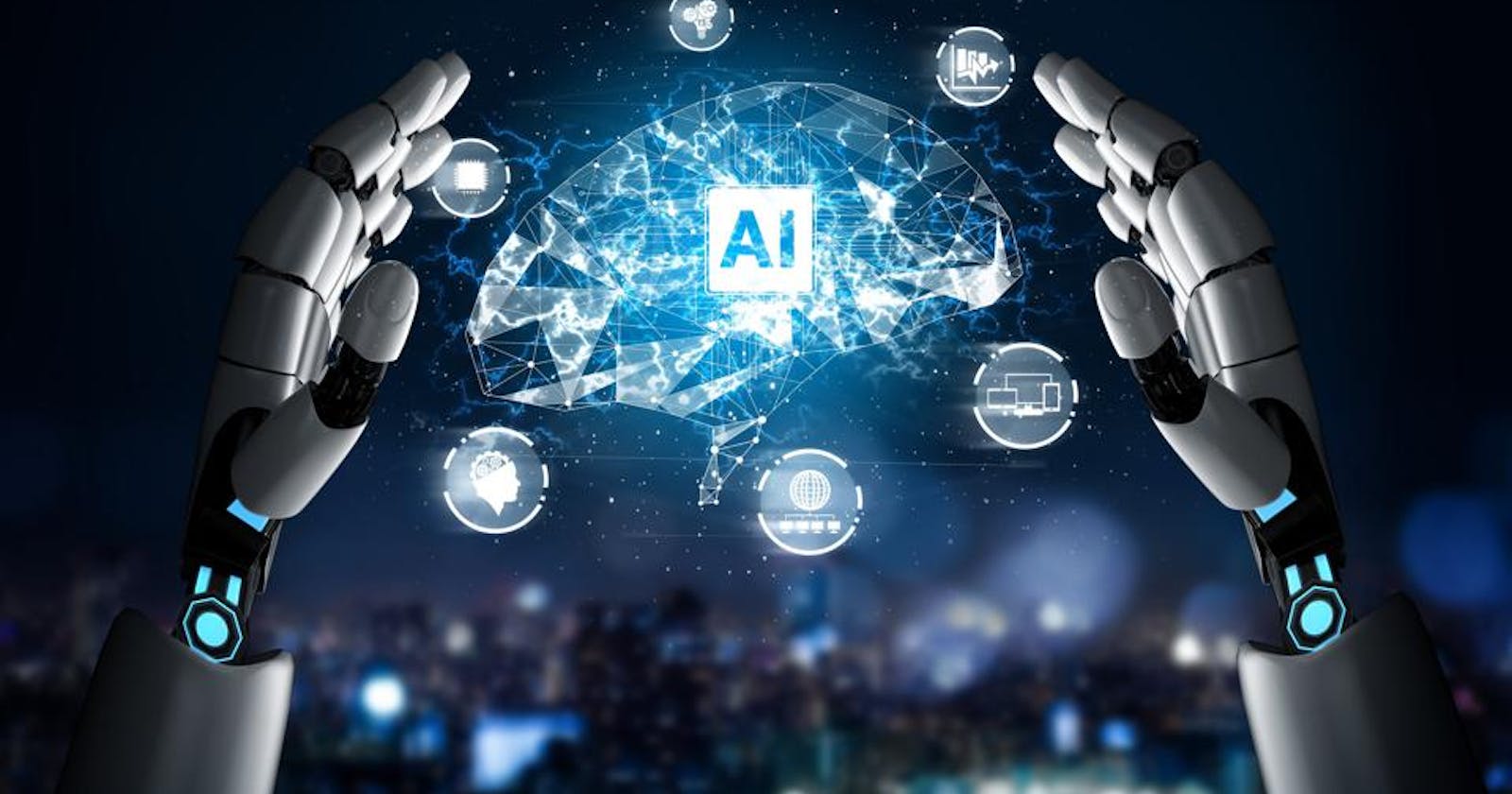I. Introduction
For those unfamiliar, AI refers to the simulation of human intelligence in machines that are designed to think and act like humans. In my observations, I have seen just how much of an impact AI has had on our daily lives and just how integral it has become. In this blog, I want to delve into the importance of Artificial Intelligence in our daily lives and how it has changed the way we live, work, and interact with the world around us.
II. Basic Concepts of AI

In order to fully understand the importance of Artificial Intelligence in our daily lives, it is crucial to have a basic understanding of some of its key concepts.
The first of these concepts is Machine Learning, which involves training algorithms to make predictions or decisions based on data inputs.
Another important concept is Deep Learning, which is a subset of Machine Learning that uses artificial neural networks to analyze large amounts of data and identify patterns within it.
Neural Networks themselves are mathematical models that are designed to work similarly to the human brain, processing and making decisions based on input data.
These concepts lay the foundation for many of the AI technologies that are used in our daily lives and play a crucial role in how they function and deliver value.
III. Applications of AI

Now that we have a basic understanding of some of the key concepts in AI, let us look at some of the practical applications of this technology.
In the field of Healthcare, AI is being used to analyze large amounts of medical data and assist in the diagnosis and treatment of various diseases, and with the introduction of 5G, we will see a drastic improvement in computers to process massive amounts of data and diagnose the disease more efficiently.
Another area where AI is making a big impact is Automation, where AI algorithms are being used to automate repetitive tasks and improve efficiency in various industries. It reduces the amount of hard labor and saves a lot of time in turn saving a lot of capital for the organizations.
Robotics is another area where AI is being utilized, with robots being designed to work alongside humans and perform tasks that are too dangerous or difficult for humans to do.
Finally, Gaming which is an activity that everyone loves is also an area where AI is making its presence felt, with game developers using AI algorithms to create more realistic and engaging gaming experiences for players.
These are just a few examples of the many applications of AI and show just how far-reaching its impact can be and it won’t be long before we see AI being used in every field of work.
IV. Impact of AI on Society

While AI has the potential to bring about many positive changes, it also raises a number of important societal questions and concerns.
One of the biggest concerns is Job Displacement, as AI algorithms become more advanced and capable of performing tasks previously done by humans.
There are also Ethical Concerns surrounding the use of AI, including issues of privacy and accountability. Additionally, there is a growing concern around Bias and Fairness in AI algorithms, as these algorithms may be trained on biased data and perpetuate these biases in their decision-making.
The most known example would be ChatGPT by openai, This language model is like a human-like genie that can answer even the toughest of questions with ease. Recently, ChatGPT was posed with interview questions for an entry-level software engineering role at Google and it nailed it, proving that it's not just smart, but also really capable.
It is important to address these challenges and find ways to ensure that the development and deployment of AI technologies are done responsibly and ethically.
V. How to get started with AI
For those who are interested in exploring AI further, there are many resources available for learning and developing AI technologies. There are a variety of online courses and tutorials that offer a comprehensive introduction to AI and its related concepts.
For those who are interested in hands-on experience, there are many tools available for developing AI algorithms and applications. Some popular tools include TensorFlow, PyTorch, and scikit-learn, which are open-source libraries for developing AI algorithms and models.
my recommendations:
AI and Machine Learning for Coders by Laurence Moroney
https://developers.google.com/machine-learning/crash-course
https://www.deeplearning.ai/courses/ai-for-everyone/
VI. Conclusion
In conclusion, Artificial Intelligence is a rapidly evolving field that is having a profound impact on our daily lives.
I have covered a number of key concepts in AI, including Machine Learning, Deep Learning, Neural Networks, and the various applications of AI in fields like Healthcare, Automation, Robotics, and Gaming.
I have also discussed the impact of AI on society and the important ethical concerns that must be addressed as AI continues to develop.
In terms of future directions for research in AI, there are many exciting possibilities. From advancing the capabilities of AI algorithms and improving their accuracy to exploring new applications of AI in fields like education and finance, the future of AI holds much promise. It will be fascinating to see how AI continues to evolve and shape our world in the years to come.
References:
AI for everyone by Deeplearning.ai
https://youtube.com/playlist?list=PLOU2XLYxmsIK6HyKuHTRDCMxkOPFB2vfp
